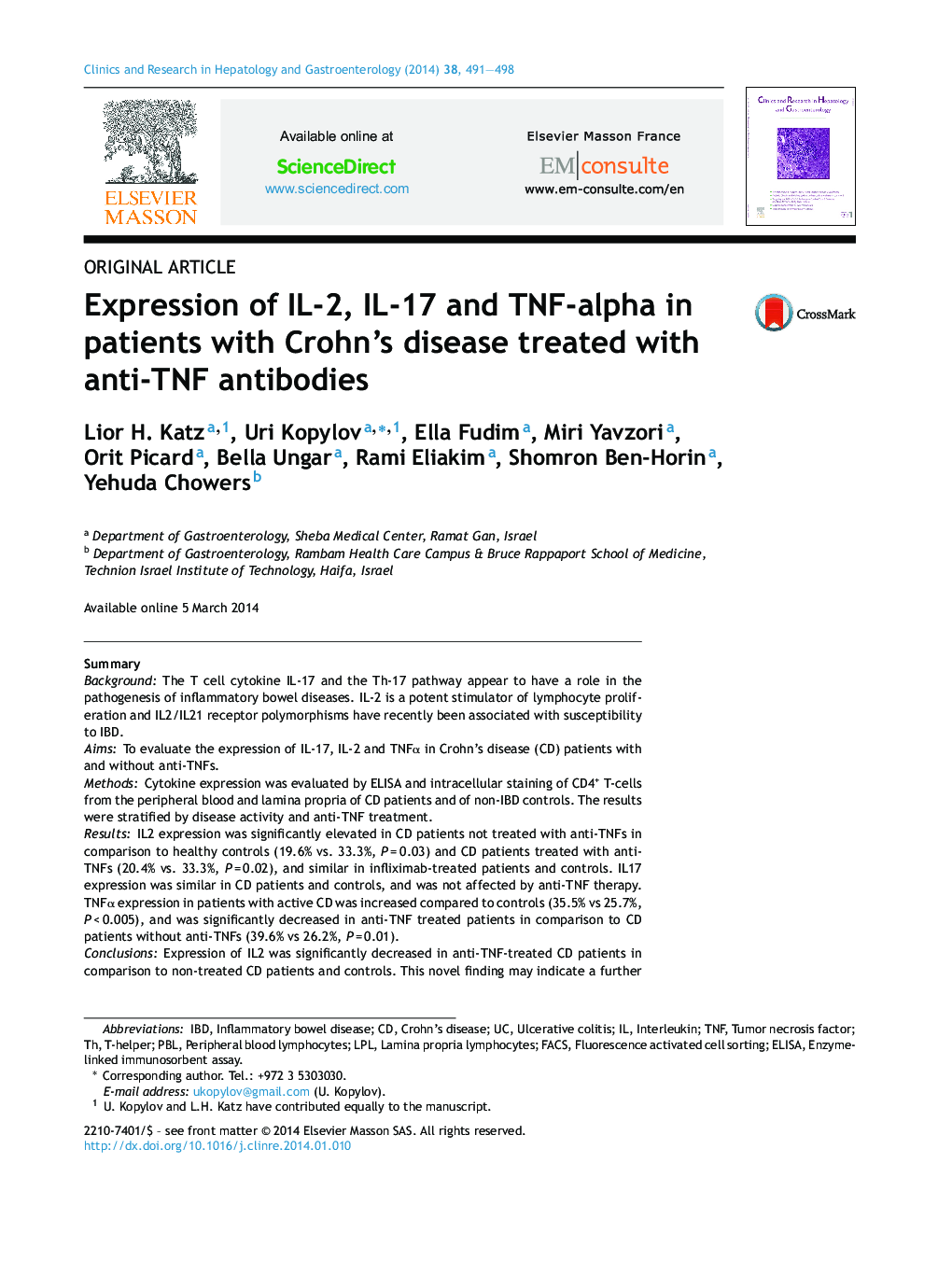| Article ID | Journal | Published Year | Pages | File Type |
|---|---|---|---|---|
| 3286327 | Clinics and Research in Hepatology and Gastroenterology | 2014 | 8 Pages |
SummaryBackgroundThe T cell cytokine IL-17 and the Th-17 pathway appear to have a role in the pathogenesis of inflammatory bowel diseases. IL-2 is a potent stimulator of lymphocyte proliferation and IL2/IL21 receptor polymorphisms have recently been associated with susceptibility to IBD.AimsTo evaluate the expression of IL-17, IL-2 and TNFα in Crohn's disease (CD) patients with and without anti-TNFs.MethodsCytokine expression was evaluated by ELISA and intracellular staining of CD4+ T-cells from the peripheral blood and lamina propria of CD patients and of non-IBD controls. The results were stratified by disease activity and anti-TNF treatment.ResultsIL2 expression was significantly elevated in CD patients not treated with anti-TNFs in comparison to healthy controls (19.6% vs. 33.3%, P = 0.03) and CD patients treated with anti-TNFs (20.4% vs. 33.3%, P = 0.02), and similar in infliximab-treated patients and controls. IL17 expression was similar in CD patients and controls, and was not affected by anti-TNF therapy. TNFα expression in patients with active CD was increased compared to controls (35.5% vs 25.7%, P < 0.005), and was significantly decreased in anti-TNF treated patients in comparison to CD patients without anti-TNFs (39.6% vs 26.2%, P = 0.01).ConclusionsExpression of IL2 was significantly decreased in anti-TNF-treated CD patients in comparison to non-treated CD patients and controls. This novel finding may indicate a further mechanism of anti-TNF therapy in CD. Expression of IL17 was not influenced by presence of CD or anti-TNF therapy, which may partly explain the failure of recent clinical trials investigating anti-IL17 therapy in CD.
